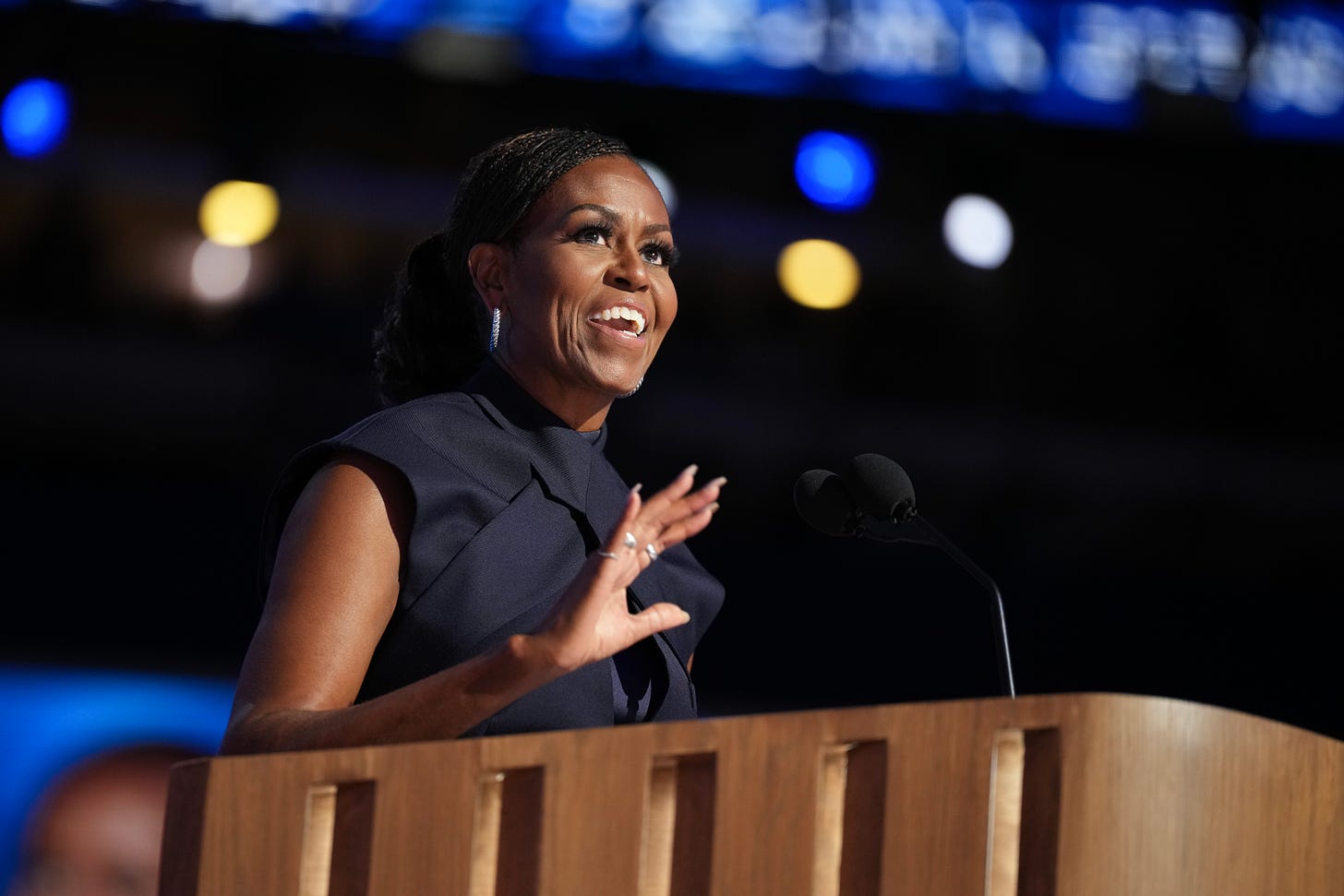
Dem Convention Night Two: The Non-Pros Steal the Show
Michelle Obama and Doug Emhoff introduce Kamala Harris to the country.

THE BEST ARGUMENTS made for Kamala Harris’s election at the Democratic convention so far have come from the two biggest speakers who’ve never held political office.
The primetime speeches on Tuesday night from Second Gentleman Doug Emhoff and former First Lady Michelle Obama were diametrically opposite in delivery and content, yet they accomplished the same critical goal: selling Harris and the need for her election to the American public.
Speaking first, Emhoff told the story of being set up on a blind date with Harris, sheepishly leaving a voicemail on her phone, and then constructing a life together filled with complexities: stepkids and different religions, stressful professional obligations and painful public scrutiny. It was a romantic comedy mixed with political theater, with a delivery warm, self-deprecatory, and menschy.
On the surface, it didn’t seem entirely atypical for a spouse’s convention address. But the context made it unique: not just the fact that the spouse in this case is a male but that Harris, a presidential candidate who has served 3.5 years as vice president, still remains a blank slate for voters. Indeed, focus groups prior to her emergence as the Democrats’ presidential candidate showed that unfamiliarity with her record and biography was fairly common.
Although Michelle Obama did allude to Harris’s biography, pointing out similarities to the former first lady’s own family history, her main focus was the political case for electing Harris—both the affirmative case and the argument against Trump. She was biting in her assessment of the ex-president, naming him only once but with lines that were both searing and likely to have historical resonance: “Who’s going to tell him that the job he’s currently seeking might just be one of those ‘Black jobs.’”
She also tapped into what is a clear undercurrent within the convention hall this week: the concern among attendees that complacency could take hold.
“No matter how good we feel tonight or tomorrow or the next day, this is still going to be an uphill battle . . . we cannot be our own worst enemies,” she said.
Her delivery was polished, as you’d expect of someone speaking to a national convention for the fifth time. Emhoff’s had more the feel of informal storytelling. She sparked ferocious roars from the audience, he got more laughs and “ahhhhs.” She was political, he was personal. In fact, the only place where they truly overlapped was in referencing Harris’s laughter; each making a virtue out of what has been a target of Trumpian mockery.
Yet both did something that the first night’s speakers failed to truly accomplish: they painted a human portrait of Harris for an electorate still learning about her, then laid out the game plan for the sprint ahead.
And that, more than anything else, is the goal of the convention: to give the on-the-fence voters the permission to say yes and to give the reluctant voters the motivation to act. By the time President Barack Obama closed out the night, it felt as if the evening had already crested.
That two non-politicians stole the show Tuesday may be a bit of a surprise. But with voters constantly expressing their distaste for “regular politicians,” the Harris campaign probably is thrilled with the results.















